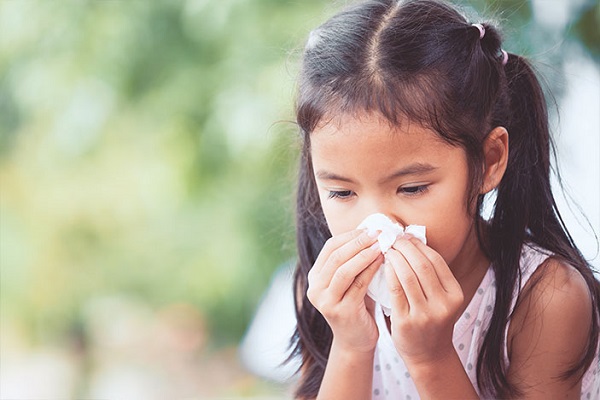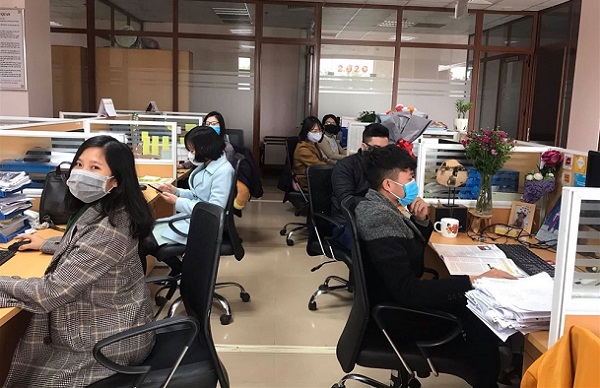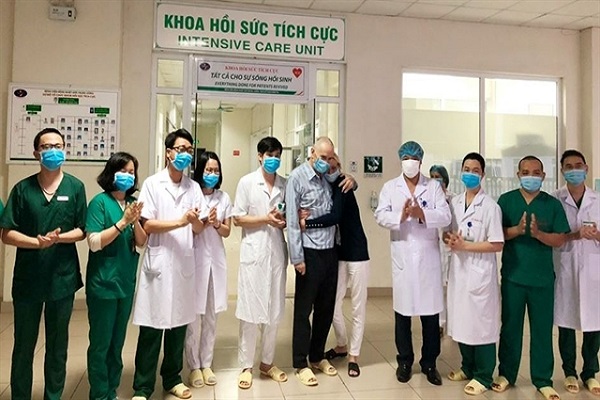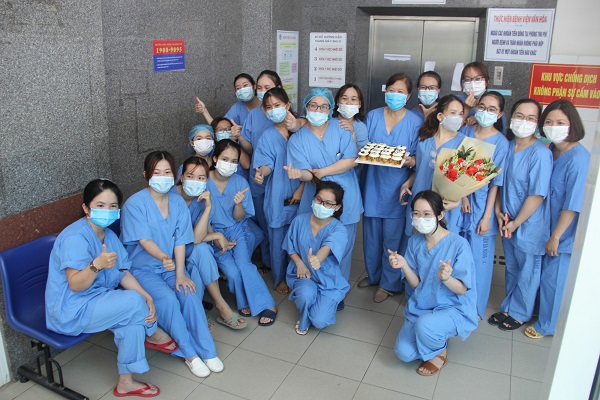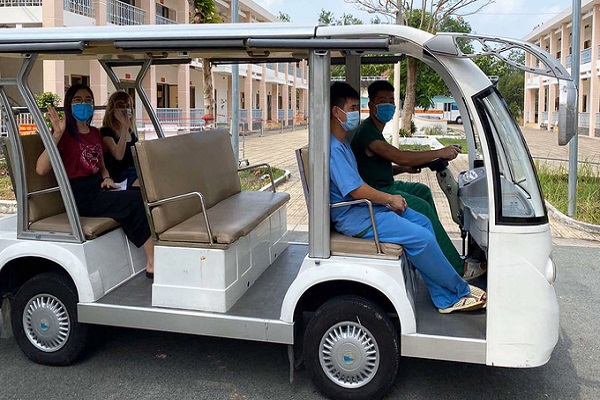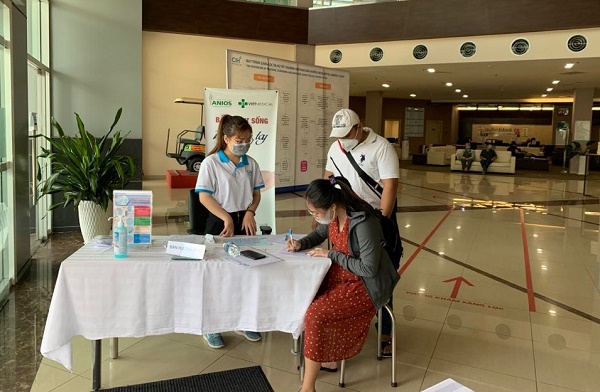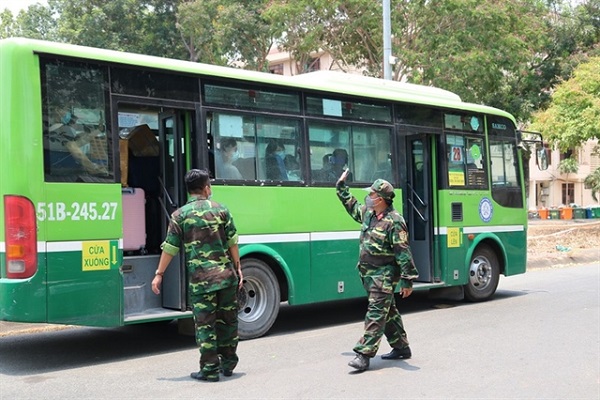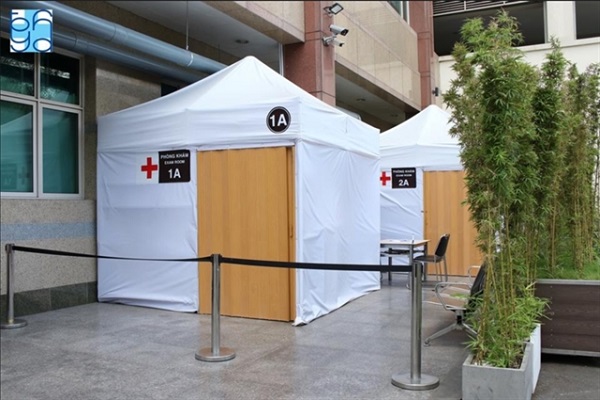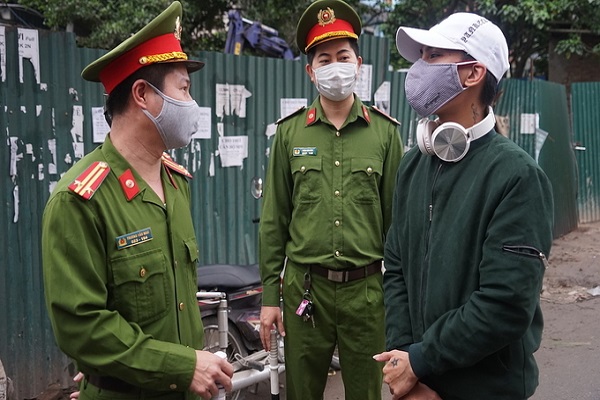2020-02-17 08:13:19
Frequently asked questions and answers on prevention and control of acute respiratory infection caused by the new strain of coronavirus (COVID-19)

Why is the novel coronavirus (2019-nCoV) now being called COVID-19?
The World Health Organization made an announcement Feb. 11 that the official name for the illness caused by the new coronavirus (previously known as 2019 Novel Coronavirus or 2019-nCoV) is now COVID-19.
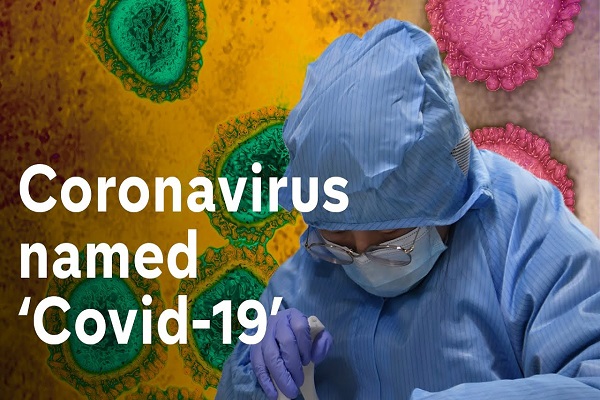
What is the acute respiratory infection caused by the new strain of Coronavirus (COVID-19)?
The acute respiratory infection caused by the new strain of coronavirus, named COVID-19, originated in a large animal and seafood market in Wuhan, Hubei Province, China. The virus causes acute respiratory infections in humans and can jump from one human to another. In addition to this newly-discovered strain of coronavirus which have been known so far to infect humans.
Where did this new coronavirus come from?
Public health authorities and researchers are working hard to identify the origin of COVID-19. Coronavirus is a betacoronavirus and originates in bats, which causes SARS and MERS. Coronavirus is a large family of viruses, which is commonly found in many different animals including camels, cats and bats. Genetic analysis of this new virus is being carried out to identify the specific origin. In the case of SARS, the coronavirus originated from civet cats before gaining the ability to infect humans. While in the case of MERS, camels served as the host.
How does COVID-19 spread among humans?
The new virus is identified to spread from one person to another through direct contact with respiratory droplets of infected person. It could be indirectly spread if people touch an object with the virus and then touch their mouths, noses or eyes. Therefore, the basic protective measures against the new coronavirus are washing your hands frequently with soap and other preventive measures without using medicine. According to some studies, this new virus can also be transmitted through gastrointestinal tract.
Is COVID-19 the same as the MERS-CoV or SARS-CoV?
The recently emerged COVID-19 is not the same as the coronavirus that causes Middle East Respiratory Syndrome (MERS) or the coronavirus that causes Severe Acute Respiratory Syndrome (SARS). However, genetic analyses suggest this virus emerged from a virus related to SARS. There are ongoing investigations to learn more.
What are the symptoms that COVID-19 can cause? How dangerous is this new virus?
For confirmed COVID-19 infections, reported illnesses have ranged from people with little to no symptoms to people being severely ill. Symptoms can include: fever; cough; shortness of breath. The symptoms may appear in as few as 2 days or as long as 14 days after exposure. More serious cases develop severe pneumonia, acute respiratory distress syndrome that can lead to the death of the patient. People with existing chronic conditions seem to be more vulnerable to severe illness.
How can I avoid getting infected?
The following measures should be proactively taken:
- Avoid traveling while you feel sick with fever, cough, or difficulty breathing. Go to the healthcare facilities if you have suspicious symptoms. Tell the healthcare personnel about your recent travel and your symptoms.
- Wash hands often with soap and water. If soap and water are not readily available, you can use an alcohol-based hand sanitizer.
- Avoid touching your eyes, nose or mouth.
- Avoid contacting with sick people. If required, wearing face masks properly.
How can I avoid getting infected?
- Cover your mouth and nose with a tissue or your sleeve when coughing or sneezing. Wash your hands with soap and water or use an alcohol-based hand sanitizer after using the toilet.
- Do not spit in public places.
- Limit traveling to affected areas
- Ventilate your house by opening windows and doors.
- Avoid undercooked meat and dairy.
- Avoid contacting with wild animals.
What should people come from China or affected areas, and people had close contact with suspected COVID-19 or COVID-19 infected patients do?
- Seek immediate medical attention from your healthcare facilities.
- If you develop any symptoms: fever/cough/shortness of breath, wear face masks and contact healthcare personnel for advice, examination and control of infection.
What should I do when traveling to China or affected areas?
- Avoid traveling to affected areas unless unforeseen circumstances arise.
- Avoid going to public places and apply hygienic guidelines when you have to travel to affected areas.
- If you have sudden onset of a fever, cough or shortness of breath, wear face masks and contact the closest healthcare facilities for prompt treatment and care.
- Follow the local public health sector for more advice and information on protection and prevention.
What should I do if I have fever, cough and difficult breathing symptoms?
- Avoid all nonessential travel
- Wear face masks and come to the closet healthcare facilities for treatment.
- Avoid going to public places. If you have to contact with many people, wear face masks properly and change them frequently.
When SHOULD I wear face masks?
- If you have symptoms of respiratory disease like: fever, cough, difficulty in breathing.
- Have close contact with someone who is infected with a respiratory diseases
- When going to public places.
How to wear face masks correctly?
- Use face masks for SINGLE use only.
- When wearing a mask, put the colored/darker side as an outer layer while the white/lighter side as an inner layer. The outer layer is hydrophobic and fluid-repelling layer while the inner layer is to absorb moisture, as the air we breathe out contains moisture.
- Choose the most suitable face mask, not too tight or too loose. The face mask can fully cover both the mouth and nose.
- When taking off your face masks: hold both of the ear loops, gently lift and remove the face masks in the trash bins. Wash your hands with soap and clean water or hand sanitizer after taking off your mask.
How to wear face masks correctly?
Points to note:
- AVOID pulling masks under your mouth or chin.
- AVOID touching the outer layer of the mask, because your hands may pick up the potentially dangerous germs to contaminate yourself and people around.
- DO NOT take off the mask by touching it. The habit of touching your mask will let dangerous germs and viruses take up residence in your mucous membranes which can lead to an infection.
[Watch the video to know the proper way to put on a surgical mask]
How do I know if a person is infected with COVID-19?
Up until now, diagnostic testing for COVID-19 can be conducted only at health centers that authorized to performed tests. The technique to identify COVID-19 strain is Real time RT - PCR using sample of sputum, endotracheal fluid, BAL fluid collected by cotton swab and store in suitable environment. In case of new suspicion of infection with Coronavirus, local medical centers will carry out procedures to save blood samples and deliver them to healthcare facilities that authorized to perform test by the Vietnam Ministry of Health.
Where can I get tested for COVID-19?
Healthcare professionals and doctors will determine if there is a need for a laboratory tested for COVID-19. If you develop some symptoms of respiratory illness, immediately come to your closest medical center for guidance and treatment.
How has Ho Chi Minh City Implemented disease prevention and control?
In order to control the outbreak of COVID-19 in Ho Chi Minh City, the whole political system of the city has made an effort to protect lives of citizen, minimize the deaths caused by the global health emergency.
The City has prepared ways to cope with the outbreak of COVID-19. In the current situation, the City focuses on implementing the following solutions:
- The basic preventive measure is to isolate sick people, wash hands often with soaps and implementing preventive measures without using medicine.
- Supervise people on entry. If detected cases having symptoms of acute respiratory infection and epidemiological factors (from China or contact with suspected COVID or COVID infected patients), they will be referred to the hospital for isolation and specific test.
- Isolate and apply treatment for patients suspected of infection or COVID infection as prescribed to limit spread in the community.
- Quarantine people coming from China.
- Supervise people who have close contact with COVID infected patients.
- Ensure rapid triage and isolation of patients with symptoms of suspected COVID-19 or other respiratory infection. Seek immediate medical attention if there is any sign of symptoms (fever, cough).
- Provide sufficient information, especially infection prevention and control measures, to the public.
- Organize medical treatment establishments and isolation facilities in the City.
- Ensure adequate supply of protective equipment, medicine, food, social security in case of emergency.
Should you have any questions, please do not hesitate to contact us:
City International Hospital
- Phone: (8428) 6280 3333, ext. 0
- Address: No. 3, 17A Street, Binh Tri Dong B Ward, Binh Tan Dist. (Next to AEON Mall Binh Tan). Ho Chi Minh City.
- Website: https://cih.com.vn/en/
- Email: This email address is being protected from spambots. You need JavaScript enabled to view it.
Pharmacity Clinic (Managed by City International Hospital)
- Clinic location: 44 Quoc Huong, Thao Dien, District 2, Ho Chi Minh City.
- Helpline: (028) 700 3350 - 093 357 6086
- Clinic hours: 7:30 a.m. - 8:30 p.m.
- Consultation fee: 70,000 dong per visit.
General disclaimer
Always consult your doctor regarding any concern about your health. Your doctor will be in the best position to give the appropriate medical advice. For suspected undesirable drug reaction and seek medical attention immediately.











